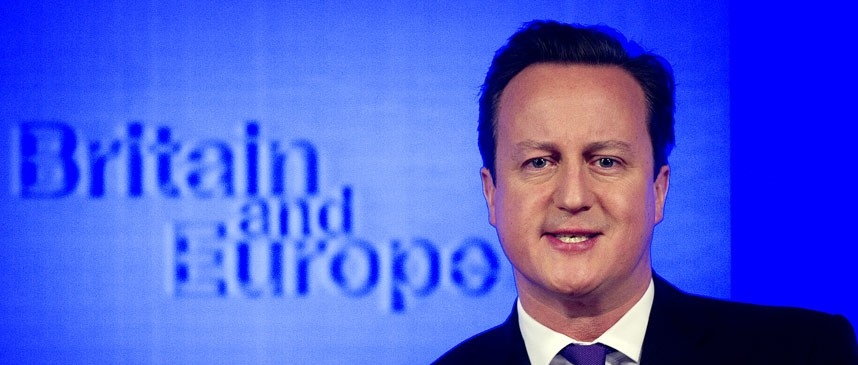
Groundhog day for Europe: Why David Cameron needs to learn from his mistakes
Ahead of the UK general election, opinion polls predicted that Britons would wake up on May 7th to a hung parliament. But for the first time since John Major’s defeat in 1997, Britain again finds itself governed by a Conservative majority government.
Victory has not simplified things for the prime minister. In 2013, David Cameron promised that if he remained in power he would renegotiate the terms of Britain’s relationship with the EU and then put the result to an ‘in-out’ referendum. Now he has to deliver on that pledge. In order to smooth negotiations with European partners, David Cameron must draw lessons from his past mistakes.
First, he needs to give up his transactional style of politics. In December 2011, he caused dismay in Brussels when he demanded legal safeguards for the City of London, the British financial centre, in exchange for supporting treaty change to introduce a stricter budgetary discipline. The attempt to hold the rest of Europe to ransom fell flat: in the event every member-state except the UK and the Czech Republic signed the fiscal compact (an agreement reached outside the EU framework over which London could exercise no influence). Vetopolitics remains unpopular in Brussels and may again backfire.
Second, Cameron should not put all his negotiation eggs in the Anglo-German basket. ChancellorAngela Merkel will do her best to help the PM, but European politics is still based on consensus-making and other EU capitals will have to have their say too. In 2013 Cameron upset old friends in the new member-states: his comment thatBritain’s 2004 decision to open the labour market to eastern workers had been a ‘mistake’ caused anger in Warsaw. If Cameron wants to restore relations to their former health, it will take more than one whistle-stop tour of Europe.
Third, Cameron should keep his demands realistic and helpful. Member states seem sympathetic to his bid to improve European competitiveness, but Cameron’s proposal to limit access to in-work benefits for EU workers will be given short shrift: it is widely regarded as a threat to the free movement of people. Cameron should focus on revitalising the EU by cutting red-tape or strengthening dialogue between the Commission and parliaments rather than on putting forward ideas that other EU capitals will see as weakening the Union.
Finally, and as a logical corollary to this, Cameron needs to stand up to eurosceptics in his party. In the past he has made concessions to his backbench colleagues, and other EU leaders worry that as the referendumapproaches he will do so again. Cameron knows that British voters like united governments and punish those that show their ideological splits in public; that argues for making the preservation of party unity apriority. But if eurosceptics push him into asking for theimpossible in Brussels, he will have less chance ofbringing back a result that he can label as a success and the basis for a ‘yes’ vote in the referendum.
Public support for leaving the EU is currently low but - as the May elections showed - polls can bemisleading. If Cameron does not grasp theopportunity now and campaign in favour of Europe, he may go down in history as the man who won a majority and lost a contient.
